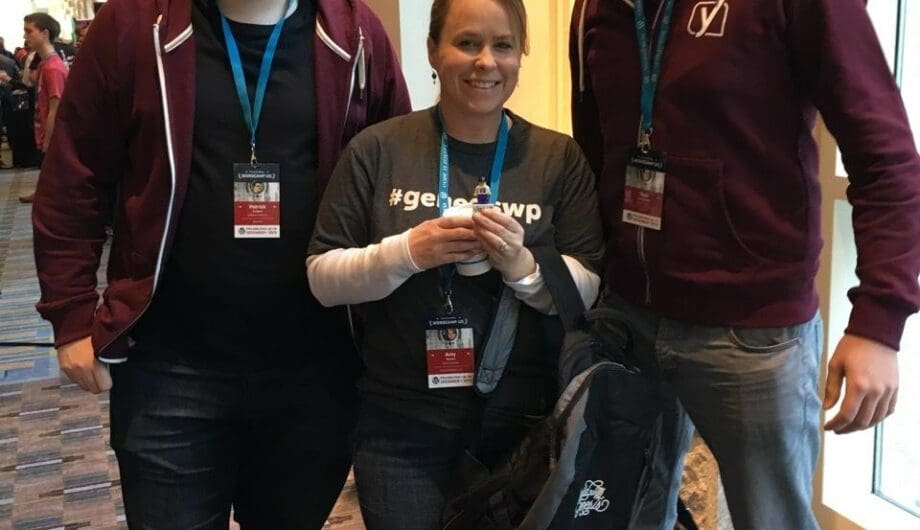
When we opened our virtual doors in 2006, there wasn’t much of a tech community. I lived in a tiny town with around 6,000 people. I had been a stay-at-home mom for a year. I only had a handful of clients, and what I knew about business could be summed up to what I taught in the “business applications” class I taught to seventh graders.
We’ve been in business almost nine years now, and we’ve met a lot of people in that time. I say “met,” but that’s not often in person. We meet people online through forums, discussions, blogs, email, Twitter, Facebook, and Linked in. We’re virtually all over the place.
But back then, we were still new and learning about all the different kinds of technology, all the different ways to make websites. This was before Twitter really got popular, and before Facebook had expanded much past university students. Opportunities for networking, both online and off, were small. I spent a lot of time perusing sites, reading blogs, seeing what other people were doing, and asking a lot of questions. But what I lacked was quality connections to my colleagues.
One day, I stumbled upon an e-commerce site, and I was intrigued. I wanted to know what kind of technology it was using, what kind of shopping cart it was. Where did it come from? I wanted to know how it worked. I couldn’t tell where it came from just by reading the source code, but there was a link to the designer on the site. I clicked through and I sent her an email, frankly asking her what it was and if she’d tell me more about it.
Eight years later, I still find myself irritated by her response. Her email said she wasn’t going to tell me what it was. “I’m sure you can understand why,” she wrote.
To this day, I still don’t understand.
Don’t get me wrong, I know what she meant. She didn’t want to tell me, because she was concerned about her competition. She didn’t want me to learn what she was doing and start offering the same services. She didn’t want to compete with me.
To me, that seems incredibly narrow-minded. The potential clientele for what I do, what she did, is limitless. I’m not limited by geography or by industry. I can work with anyone, anywhere. Competition? It’s not something I worry about. There’s more than enough business to go around, especially when I understand that not every project is a good fit for our services. My perfect client may not be her ideal client. So the idea that by learning more about how she did what she did, that would somehow diminish her in some way… It didn’t make sense to me then. It doesn’t make sense to me now.
This past December, I went to my first WordCamp. I met so many great people. And this is where I learned that I somehow stumbled upon the right technology to focus on, the right core group of people to join. The people at this conference were fantastic. They were excited to share what they knew. They wanted to know about what I did. And more importantly, they wanted to build up other designers and developers. They wanted to include everyone in their “cool kid” group.
It was a pivotal moment for me since I left my career as a teacher and embarked on this path into web design. Working from home can, at times, be very isolating. Realizing that I somehow stumbled into a group of similar-minded people, who have a desire to help others, share with their peers, and really grow this community – this is the kind of community I want to belong to. And now I find myself eager to share my own knowledge, because I know I’ll gain more by sharing what I know than than I would otherwise receive. There’s great power in sharing.
Everyone was new once. Building partnerships, building friendship, sharing knowledge – this is the foundation of the WordPress community. Everyone has to start somewhere.
My advice to those of you just starting out? ASK FOR HELP. There’s no shame in finding help, and the only shame is on those who refuse to help after having been asked.
I sometimes think back to that email exchange with the designer who refused to tell me her secret. I don’t remember her name or her website. But I sometimes wonder what she’s doing now. Is she still working in web design? Is she still keeping her knowledge to herself, afraid of the competition? Or is she encouraging and inspiring those around her, helping to build a community of like-minded developers who raise each other up instead of tear each other down?
I hope it’s the latter.
Amy Masson
Amy is the co-owner, developer, and website strategist for Sumy Designs. She's been making websites with WordPress since 2006 and is passionate about making sure websites are as functional as they are beautiful.
